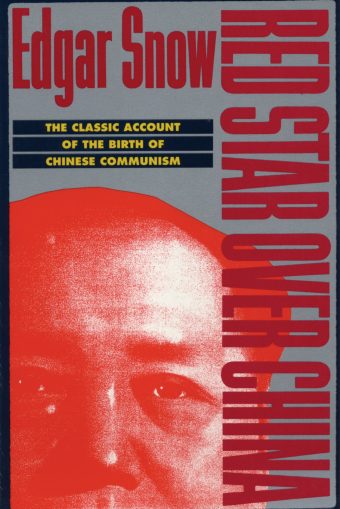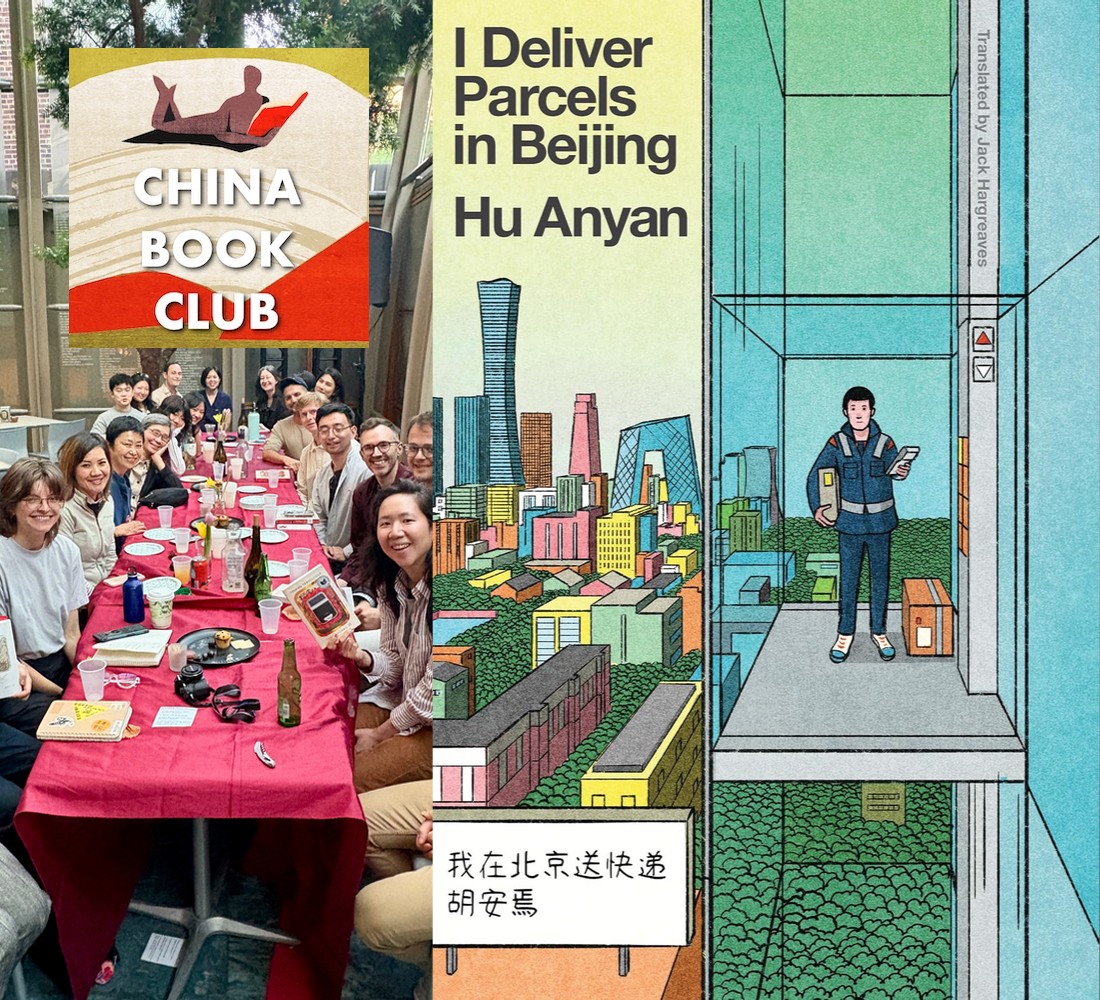Edgar Snow’s iconic memoir of meeting Mao in 1936, Red Star Over China, was, according to Julia Lovell in a 2020 book, “the beginning of global Maoism.” Snow’s sympathetic account of the early Chinese Communist Party (CCP) defined perceptions of their revolutionary project for generations of foreigners and Chinese alike. When I first read it, as a left-leaning American college sophomore in 1977, I was enthralled by Snow’s stirring stories and captivating character portraits. It was, for me, the start of a professional life studying Chinese politics. Although I had never been a completely committed fellow traveler, I was drawn to the possibilities of a leftist alternative to American politics and foreign policy.
Much has transpired since the work’s first publication in 1937. The epic failures of Maoism after 1949 cast cruel shadows over Snow’s rosy stories of the Reds — as he called them — seeking a kind of “rural equalitarianism” that was not, in his view, really Marxist. From a contemporary vantage, Red Star has lost its luster. But the question remains: how did Snow’s narrative command such intellectual authority for decades? Why did we — for I was one of that number — want to believe that his 1930s observations captured an essence of Maoism that persisted into the 1970s?
Snow had arrived in China in 1928, a fresh-faced 23-year-old American Midwesterner. He was not a China specialist by any means, but had meandered through his early years “from vagabond to journalist,” as one biography put it. A stint in Shanghai, writing for the China Weekly Review, led to more prominent assignments. He traveled about China, witnessed famine conditions, and became familiar with Marxist-inspired critiques of the economic and political conditions he observed. By the time he and his first wife, Helen Foster Snow, moved to Beijing in 1933, his reputation as an energetic journalist was well established. So when Soong Qingling, wife of the deceased republican leader Sun Yat-sen, was tasked by the CCP to find a sympathetic foreigner to come to Yan’an to report on their movement, Snow was at the top of the list. Yet unknown to him, his entire path-breaking trip to the Communist base in 1936 was carefully orchestrated by his hosts.

Snow did, indeed, have a fantastic scoop: the first sustained report of Mao Zedong and the CCP in their Northwest redoubt, following the harrowing Long March. And he certainly made the most of it, writing a there-and-back adventure tale with a panoply of striking personalities: the intellectual Mao; the suave Zhou Enlai; the rugged Peng Dehuai; Red children (or “Little Red Devils”); Red Muslims; liberated women. The breadth of Snow’s cinematic storytelling was reminiscent of another 1937 bestseller: The Hobbit. But his protagonists were not hunting a dragon, they were fomenting a revolution.
By the time I cracked its covers in college, I was becoming disaffected with the American left. My pre-teen and high school years had been dominated by the war in Vietnam and the civil rights movement. When Lois Wheeler Snow, his second wife, came to my high school in 1973 for a public lecture, she autographed the copy of Mao’s Little Red Book I had purloined from home (“To Sam Crane, good choice — good book”). But now Jerry Rubin, erstwhile member of the Chicago Seven, was selling out to corporate comforts. Jimmy Carter’s centrist liberalism seemed an insufficient response to the inhumanities wrought by the war in Vietnam and the venality of Nixon. What happened to the revolution, and its radical transformations of economy and society, that 1960s radicals had espoused?
Then I read Snow’s story of Mao and his band of feisty Reds, with their land reform and class struggle. That, I said to myself, is a revolution!
Snow’s sympathetic account of the early CCP defined perceptions of their revolutionary project for generations of foreigners and Chinese.
Five decades later, looking back at that moment, I can see why I was so taken with Red Star Over China. Snow clearly anticipated the eventual victory of the CCP over their rivals the Nationalist Party (KMT). There were basic truths at the core of his story: rural China in the 1930s was riven by horrific inequality; peasants were languishing in deep poverty, exploitation and malnutrition; the KMT was corrupt and ineffective; the CCP was working to create a new society and economy. These points were corroborated by other observers, and ultimately shaped the U.S. government’s recalculation of its China policy — the “wait until the dust settles” stance — as Chiang Kai-shek and the KMT were pushed off the mainland in 1949. Snow had got it right, it seemed.

The book also emphasized that Mao was not Stalin, which also seemed to be true, at least for a time. This point left us to believe that the totalitarian violence of man-made famines and gulags was not going to materialize in China. Indeed, a key theme in Red Star Over China, reiterated in various contexts, was that the CCP was seeking “democracy.” Even before he crossed into Red territory, Snow mentioned their “struggling Soviet democracy.” When he observed a propaganda theater performance near Bao’an (now Zhidan County in Shaanxi Province), he remarked: “It would be hard to imagine a more democratic gathering.” In the aftermath of the Xi’an incident, he uncritically repeated the Maoist promise of a “completely democratic form of government.” And in framing the KMT as “the party of dictatorship,” he was holding up the CCP as an agent of democracy.
In conflating democracy and Maoism, Snow was reworking a Western social democratic aspiration for equality and justice familiar since at least Eduard Bernstein’s seminal text Evolutionary Socialism (1899). Some sort of democracy was what he hoped would be the case. In the stirring penultimate paragraph of Red Star, Snow quotes Lenin to the effect that “no forces can restore the old serfdom in Asia,” and then added a flourish of his own:
Neither can the democratic Socialist ideas for which tens of thousands of youths have already died in China, nor the energies behind them, be destroyed.
Heady stuff. But we know now that Mao was never committed to democracy, and simply used it instrumentally to advance the power of the Party.
Snow also recognized Mao’s Leninist commitments: the creation of “Lenin Clubs” in virtually all Red Army units, and the centrality of the “dictatorship of the proletariat” in CCP ideology. Yet if Snow chose to emphasize democratic illusion over authoritarian reality, then so too did his leftist readers in the West, from the 1940s anti-Stalinists to the 1960s New Left — letting their egalitarian hopes cloud their political judgment. Perhaps, in 1937, this idealism could be forgiven. The Great Famine and Cultural Revolution were still decades away.
A key theme in Red Star Over China, reiterated in various contexts, was that the CCP was seeking “democracy.”
When the Cultural Revolution broke out in 1966, many Western leftists, at first, wanted it to be what it had promised: the start of a new form of politics. However, as more foreign intellectuals traveled into China in the 1970s, the nation’s actual economic and political conditions gradually came to light. There was still enough Maoist sympathy in the air to influence my reading of Red Star Over China in 1977, but the zeitgeist was shifting against Snow. The meaning of Maoism now had to include political chaos and mass starvation. By the early 1980s, shocking numbers were emerging from the Great Famine of 1958-62 — on the scale of 30 million people dead, most starved, according to Judith Banister in the 1987 book China’s Changing Population. In the face of such atrocity, how could Maoism, and Snow’s claims of social democracy, be defended?
In the end, Snow was wrong. Mao was neither a social democrat, nor a real alternative to Stalin. What I could not see when I first read Red Star Over China — but is painfully obvious on reading it again today — is that the book is the beginning of a fundamental misreading of Maoism. His communist handlers in 1936 got precisely what they intended: a persuasive distortion of their inhumane political movement. ∎

Sam Crane teaches contemporary Chinese politics and ancient Chinese philosophy at Williams College. His publications include Life, Liberty, and the Pursuit of Dao: Ancient Chinese Thought in Modern American Life, and “The Problem of Power in Confucian Political Thought” (Comparative Political Theory 1, 2021).



